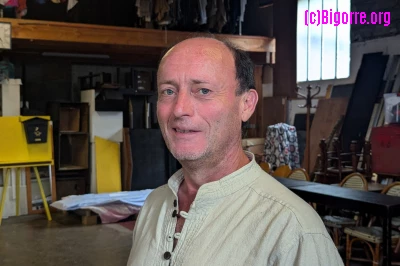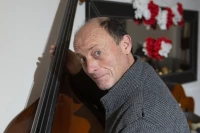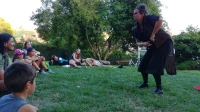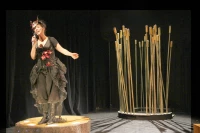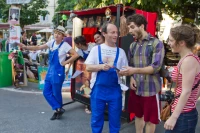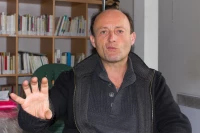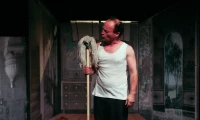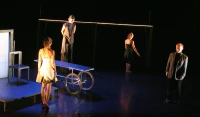Known for being resistant to adaptation and bringing bad luck, Don Quixote has the power to frighten artists who try it. And they get hooked, like Orson Welles, who never managed to complete the big-screen adaptation despite several attempts. Like Terry Gilliam, who also failed at it, as recounted in "Lost in la Mancha," the making-of of a film of which only a few minutes exist. Or like Peter Yates and his TV movie, which failed to bring his Don Quixote to life. No better in the theater, where "Quixote," presented by Gwenaël Morin this summer at the Avignon Festival, was met with mixed reviews, with spectators abandoning the ship halfway through. A track record that could discourage any artist. Any artist, but not the duo Hervé Carrère and Marc Lallement, who have also staged Don Quixote. Interview with Marc Lallement
How do you embark on an adaptation of Don Quixote?
It was a project that was, how can I put it, improbable. Hervé Carrère and I both wanted to stage Don Quixote. So we did it together.
Without being intimidated by his reputation?
It's perhaps a challenge in terms of that reputation. Because despite everything, there have been a few projects that have been developed and succeeded. Because the character has something special, a kind of anti-hero bordering on madness. And the way the duo between Don Quixote and Sancho Panza works, which provides a kind of balance throughout their adventures.
Where did you approach the project?
We all know the character, the fight against the windmills, and two or three scenes. But ultimately, we don't really know the work. So we hang on and read the two extremely rich and wide-ranging volumes. Each one is a little adventure. And we discover an incredible character. We think he's crazy, but he asks real questions about the society of his time, in 16th-century Spain. And we see how we could do this adaptation in a new light.
We had to go from two volumes to an hour and a half of show!
It's an adaptation. We don't keep everything. There's far too much in the book to make a show out of it. As we read, we try to find the essence of Don Quixote. And we build the show using events and images that allow us to have a thread that holds together for an hour and a half of the show. I really wanted to start when Don Quixote had disappeared. Sancho Panza is completely taken by our consumer society and he sells mugs and other Don Quixote-related products at a market. And then he meets a rather mysterious character who offers to bring Don Quixote back to life for a short time in exchange for a signature at the bottom of a contract.
Is that how Don Quixote arrives here and now?
Yes, Don Quixote arrives in our society and leaves as a duo with Sancho Panza. We wondered what struggles this Don Quixote would have today. What enemies he would find himself facing. Questions about our consumer society, about a society that has no limits regarding its environment.
Was it very natural to write this adaptation together with Hervé Carrère?
Yes, the project came about like that. The person proposing it tests their idea on an initial audience. Writing as a duo is a constant game, with an alter ego who validates, extends, amends, or says "meh." With Hervé, it's very natural because we're on the same page. We bring ideas, we write, we revise, one reads, the other listens. I like this work with four hands and two heads.
While writing, did you envision yourself in the role of Sancho?
Not at all. But without being a disaster, the genesis of this Don Quixote was long and laborious. We started with an adaptation for six actors. But the finances didn't reach the expected level, we downsized, and the cast didn't identify with the project. We reworked the project two or three more times before arriving at its current form. With three actors, we found a nice density.
To see Don Quixote & Co.
The show is touring with about ten stops in the Hautes-Pyrénées as part of the cultural tour of the Tarbes-Lourdes metropolitan area and with other requests. After performances in Soues, Omex, in the Massey garden in Tarbes and in Bours, the tour continues in the department for Yves Huet, Marc Lallement and Corinne Marsollier. The 3 actors will be on Saturday September 28 at 8:30 p.m., at the village hall of Barbazan-Debat. Then it will be on October 5 in Bernac-Debat, October 12 at the Petit Théâtre of the Argelès-Gazost train station and October 26 in Séméac.
